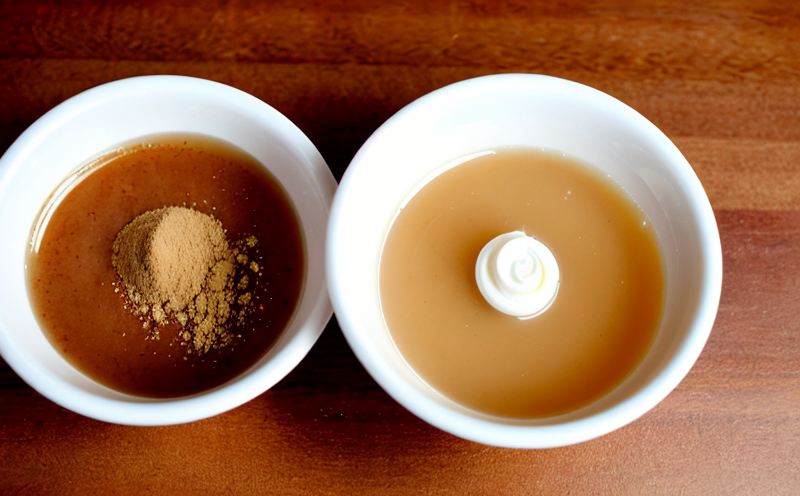USP 401 Flavor Additive Testing in Pharmaceuticals
The United States Pharmacopeia (USP) is a scientific organization that develops standards to ensure the quality, safety, and effectiveness of medicines and health products. USP chapter 401: Evaluation of Flavor Additives in Pharmaceuticals provides specific guidelines for the testing and evaluation of flavor additives used in pharmaceuticals to ensure they are safe and do not interfere with the efficacy or stability of the drug product.
The primary goal of this testing is to prevent any adverse effects that might arise from the interaction between flavoring agents and active pharmaceutical ingredients (APIs). This includes ensuring that the flavor additive does not degrade over time, alter the pH levels, or otherwise interfere with the integrity of the medication. The testing also aims at verifying that the flavor additive meets the flavor profile expectations set by regulators and industry standards.
The process involves a series of tests designed to evaluate various aspects of the flavor additive's performance in pharmaceutical products. These include dissolution studies, stability testing, compatibility checks with different excipients, and sensory evaluations conducted by trained personnel to assess taste, odor, and other attributes that could impact patient compliance or medication efficacy.
Testing must be conducted using validated methods approved by regulatory bodies such as the FDA (Food and Drug Administration). The use of standardized techniques ensures consistency across laboratories and provides a reliable basis for decision-making. Compliance with USP 401 is crucial in maintaining high standards within the pharmaceutical industry, safeguarding public health.
Compliance with these stringent requirements can significantly impact product development timelines and costs. Non-compliance may lead to delays in market entry or even the discontinuation of a product line due to safety concerns. Therefore, it's essential for manufacturers to invest in thorough testing at every stage of production, from initial formulation through final product release.
| Pharmaceutical Company | Product Line | Application of USP 401 Testing |
|---|---|---|
| Merck & Co. | Digestive Health Products | To ensure the flavoring agents do not interfere with the effectiveness of digestive enzymes or other active components in their products. |
| AstraZeneca PLC | Cancer Therapeutics | Testing to confirm that flavors are stable and do not influence the taste profile which could affect patient compliance with long-term treatments. |
| Pfizer Inc. | Vaccines | Evaluating flavor additives in vaccines to ensure they maintain potency over extended storage periods without compromising safety or efficacy. |
Benefits
- Enhanced Product Safety: Ensures that flavor additives do not pose any health risks to consumers.
- Improved Patient Compliance: By ensuring the taste and odor of medications are acceptable, patients are more likely to adhere to their treatment regimen.
- Regulatory Compliance: Helps pharmaceutical companies meet stringent regulatory requirements set by authorities like the FDA.
- Potential Cost Savings: Early detection of issues during development can prevent costly recalls or reformulations later in the process.
- Increased Marketability: Positive flavor profiles can contribute to better market acceptance and competitive advantage.
Quality and Reliability Assurance
The quality assurance measures for USP 401 testing are designed to maintain the highest standards of integrity, consistency, and accuracy. Laboratories performing this type of testing must adhere strictly to established protocols outlined in the chapter. This includes maintaining precise control over environmental conditions such as temperature and humidity during storage tests.
Instrumentation plays a crucial role in ensuring reliable results. High-precision analytical tools are used for tasks like pH measurements, dissolution profiles, and sensory assessments. For instance, pH meters are calibrated regularly to ensure accurate readings that reflect real-world conditions within the patient’s mouth or stomach.
The use of advanced chromatography techniques allows for detailed analysis of flavor compounds present in the sample. This helps identify potential interactions between different components early on in the development process when adjustments can still be made without compromising final product quality.
Training and certification of personnel involved in conducting these tests are critical to ensuring reliability. Only experienced professionals who have undergone comprehensive training programs recognized by relevant regulatory bodies should perform such analyses.





